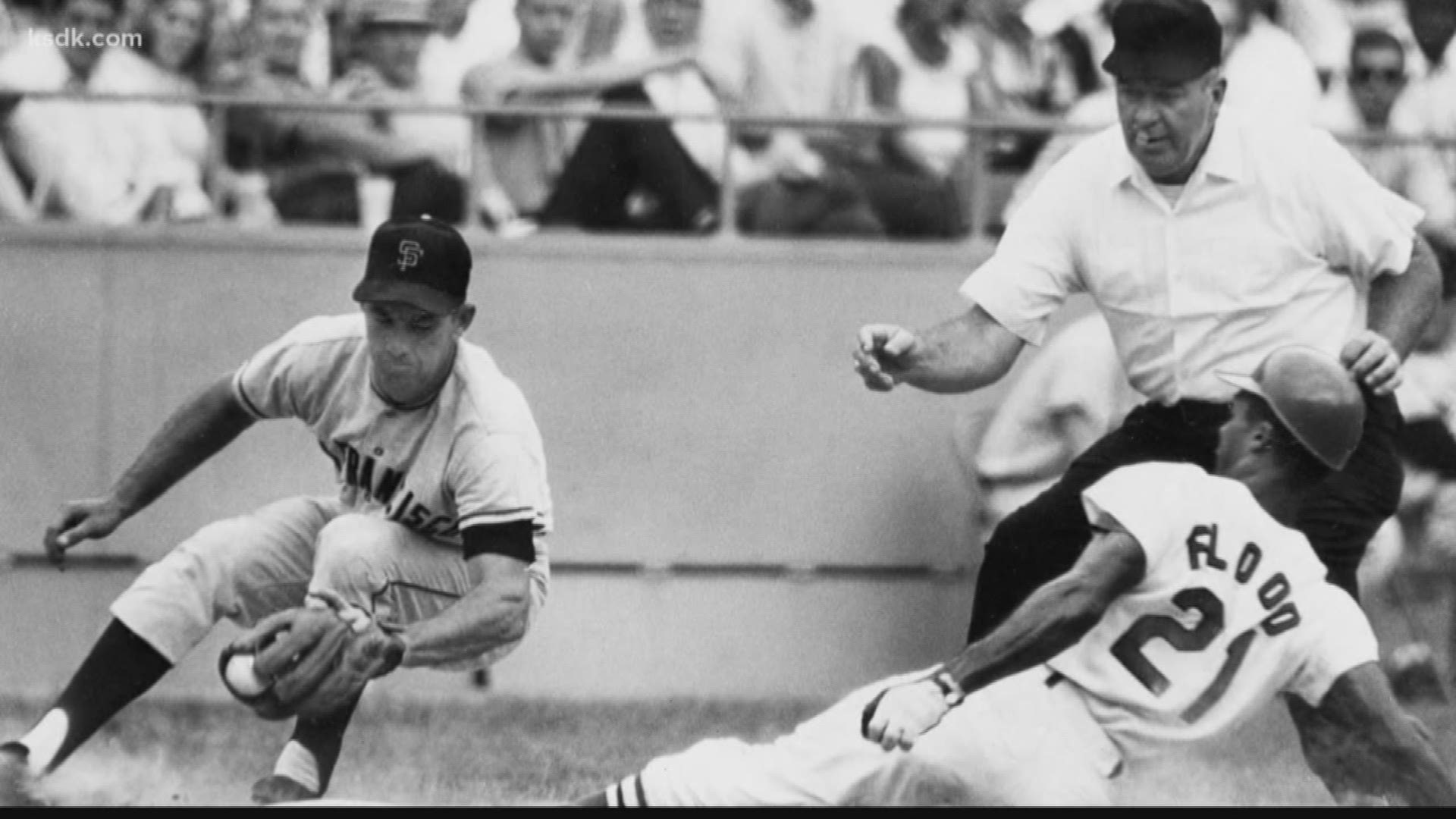ST. LOUIS — St. Louis Cardinals center fielder Curt Flood, whose letter to baseball commissioner Bowie Kuhn in December 1969 set in motion a chain of events that would lead to free agency and multi-million dollar contracts, isn't in the sport's Hall of Fame.
Now, a bipartisan group of legislators, including Sen. Roy Blunt, R-Mo.; Rep. William Lacy Clay, D-University City; and Rep. Ann Wagner, R-Ballwin, wants to change that.
The group, led by Rep. David Trone, D-Md., held a news conference Thursday afternoon in Washington, D.C., to announce an initiative to persuade the National Baseball Hall of Fame to induct Flood more than five decades after he challenged Major League Baseball's longstanding reserve clause, which allowed teams to consider players as property.
Players' unions from the NFL, NHL, NBA and MLS also had representatives at news conference, and 102 members of Congress signed the letter to the Hall of Fame. Flood's widow, Judy Pace Flood, was also in attendance.
As part of the initiative, fans of Flood and the Cardinals are encouraged to write letters, send emails and call the hall of fame to encourage its Golden Era Committee to induct Flood.
Flood played for 12 seasons with the Cardinals before the team tried to trade him to the Philadelphia Phillies in October 1969. He refused the trade, and two months later — on Christmas Eve — authored his letter to Kuhn.
In the letter, Flood wrote, “After twelve years in the major leagues, I do not feel I am a piece of property to be bought and sold irrespective of my wishes.
"I believe that any system which produces that result violates my basic rights as a citizen and is inconsistent with the laws of the United States and of the several States.”
Flood further went on to tell Kuhn he still desired to play baseball during the 1970 season, but he wanted to consider offers from other teams before making a decision.
Kuhn denied Flood’s request, leading the Gold Glove Award winner to file a $1 million lawsuit against Kuhn and Major League Baseball, alleging violation of federal antitrust laws.
The Supreme Court ruled 5–3 in favor of the league, citing a 1922 ruling in Federal Baseball Club v. National League that found the Sherman Antitrust Act did not apply to Major League Baseball.
In November 1970, the Phillies traded Flood and four other players to the Washington Senators.
An arbitrator's ruling in 1975 nullified baseball’s reserve clause, opening the door for free agency in baseball and other sports.
Players and the league negotiated a new collective bargaining agreement that gave players a broader range of options as free agents.
In 1998, Congress passed the Curt Flood Act, which amended the Clayton Act to apply antitrust laws to Major League Baseball.
Flood played 13 games of the 1971 season before making his last major league appearance on April 25.
He battled alcoholism before rebuilding his life with the help of his wife, an actress ("Peyton Place," "Cotton Comes to Harlem") who broke down barriers for black women in Hollywood. The couple dated in the '60s and married in 1986.
Flood died of throat cancer in 1997. He was 59.

